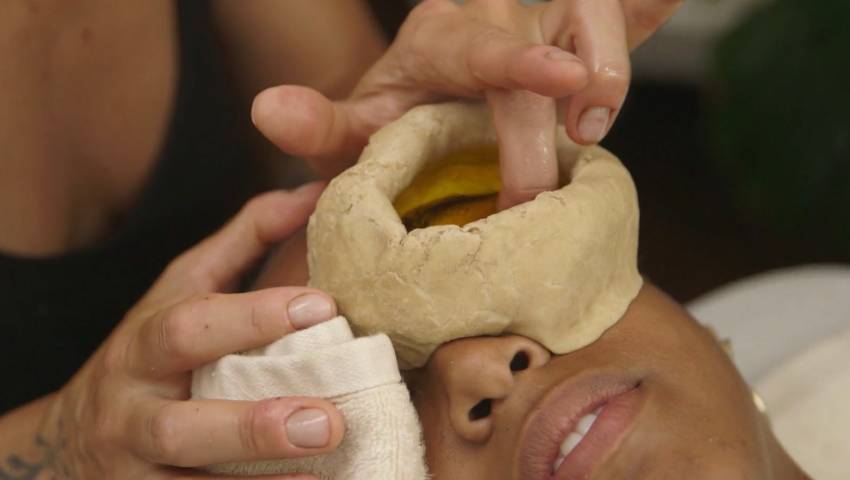
- 05/06/2024
- YASHAAYU99 Ayurveda
- Blog
Ayurveda for Eye Care: Everything You Need to Know!
In today’s digital age, our eyes are under constant strain. With prolonged screen time, environmental pollutants, and lifestyle factors, maintaining eye health has become more challenging than ever. Ayurveda, the ancient Indian system of medicine, offers a holistic approach to eye care, focusing on prevention, nourishment, and natural remedies to maintain and enhance vision.
Understanding Eye Health in Ayurveda:
Ayurveda views the eyes as an essential organ connected to the overall health of the body. According to Ayurvedic principles, eye health is influenced by the balance of the three doshas: Vata, Pitta, and Kapha. Each dosha contributes uniquely to the eye’s function and health:
- Vata governs movement and can affect the nervous system controlling the eyes.
- Pitta governs metabolism and can influence vision quality and clarity.
- Kapha governs structure and lubrication, impacting tear production and eye moisture.
Common Eye Problems in Ayurveda:
Several common eye issues can be addressed through Ayurvedic practices, including:
- Dry Eyes: Often linked to a Vata imbalance.
- Red Eyes: Typically due to a Pitta imbalance.
- Eye Strain: Can be associated with both Vata and Pitta imbalances.
- Conjunctivitis: Often related to Kapha imbalances causing infections.
Ayurvedic Remedies for Eye Care:
Ayurveda offers a plethora of remedies to improve and maintain eye health. These include dietary suggestions, herbal treatments, eye exercises, and lifestyle modifications.
Diet and Nutrition:
What you eat significantly impacts your eye health. Ayurveda recommends foods that balance the doshas and nourish the eyes:
- Vata-Pacifying Foods: Include sweet, sour, and salty tastes. Warm, moist, and easily digestible foods like cooked vegetables, soups, and dairy products are beneficial.
- Pitta-Pacifying Foods: Favor sweet, bitter, and astringent tastes. Cooling and hydrating foods such as cucumbers, leafy greens, and melons are recommended.
- Kapha-Pacifying Foods: Emphasize bitter, pungent, and astringent tastes. Light, dry foods like legumes, leafy greens, and spicy herbs are ideal.
Herbal Treatments:
Ayurveda utilizes various herbs known for their eye-health-promoting properties:
- Triphala: A combination of three fruits (Amalaki, Bibhitaki, and Haritaki) known for its detoxifying properties and benefits to eye health.
- Bilberry: Known for improving night vision and overall eye health.
- Amla (Indian Gooseberry): Rich in Vitamin C and antioxidants, it helps maintain retinal health.
- Gingko Biloba: Improves blood circulation, benefiting the eyes.
Eye Exercises:
Regular eye exercises can reduce strain and improve focus and flexibility of the eye muscles. Some recommended practices include:
- Palming: Rubbing your hands together to generate warmth and then placing them over closed eyes.
- Blinking: Blinking rapidly to moisten and relax the eyes.
- Focusing: Alternating focus between a near object and a distant object to strengthen eye muscles.
Lifestyle Modifications:
Incorporating certain lifestyle changes can support long-term eye health:
- Adequate Sleep: Ensures your eyes rest and recover from daily strain.
- Hydration: Drinking plenty of water helps maintain moisture in the eyes.
- Reducing Screen Time: Taking regular breaks during prolonged screen use to reduce strain.
Ayurvedic Treatments and Therapies:
Ayurveda also offers specific treatments and therapies for eye care:
- Netra Tarpana: A specialized Ayurvedic therapy where medicated ghee is poured into a dough ring placed around the eyes. It nourishes and rejuvenates the eyes, alleviating dryness and strain.
- Nasya: Administration of herbal oils or powders through the nasal passage to clear the sinuses and improve eye health.
- Anjana: Application of medicinal pastes or powders to the inner surface of the eyelids to enhance vision and treat infections.
- Seka: Pouring herbal decoctions over the eyes to cleanse and soothe them.
Preventive Tips for Eye Care in Ayurveda:
- Avoid Excessive Strain: Reduce exposure to screens and bright lights.
- Regular Eye Check-ups: Ensure any issues are detected and treated early.
- Proper Lighting: Use adequate lighting while reading or working.
- Hygiene: Maintain eye cleanliness to prevent infections.
Conclusion:
Ayurveda offers a comprehensive approach to eye care, integrating diet, lifestyle, and natural remedies to ensure optimal eye health. By incorporating Ayurvedic principles and practices, you can maintain and enhance your vision naturally. Always consult with an Ayurvedic practitioner to tailor treatments to your individual needs and ensure the best outcomes for your eye health.
Explore the wisdom of Ayurveda and give your eyes the care they deserve!
However, it’s essential to consult with Dr Mangesh P Desai at YASHAAYU99 Ayurveda Wellbeing Center for personalized guidance and treatment tailored to your individual needs.
